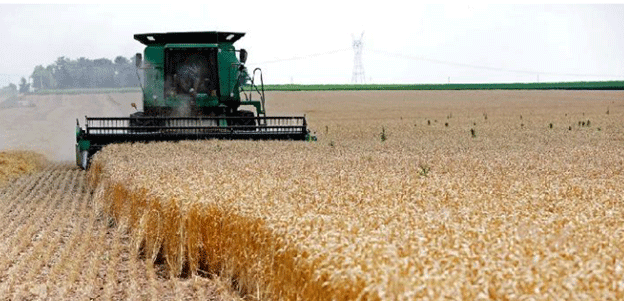Indonesia’s commitment to safeguarding its agricultural sector has led to the implementation of stricter biosecurity measures for wheat imports, particularly from Canada. As part of the country’s ongoing effort to protect local crops from potential pests and diseases, the Indonesian Agricultural Quarantine Agency (Badan Karantina) has established a new protocol with Canada, ensuring that wheat entering Indonesia meets high safety standards.
A Comprehensive Biosecurity Agreement
The collaboration between Indonesia and Canada culminated in the signing of a quarantine protocol on December 19, 2024. Under this agreement, Canadian wheat exports will no longer be required to undergo fumigation at the point of origin. This decision was based on assessments from Indonesia’s technical team, which confirmed that Canada’s wheat production system has effective risk mitigation strategies in place. However, the wheat will still be subject to thorough inspections upon arrival in Indonesia to ensure it is free from pests, pathogens, and other quarantine-organism threats.
According to Bambang, the Deputy of Plant Quarantine at Badan Karantina, specific pests, fungi, and bacteria known to be potential contaminants have been identified, and Indonesia will maintain strict monitoring of shipments to prevent any risk to the country’s agriculture. While Canada’s wheat has been deemed safe, the deal includes provisions for traceability to ensure any discrepancies can be traced back to the original storage facilities in Canada. This is crucial in case of contamination or other issues that could arise during transport.
Safety Protocols and Risk Mitigation
The wheat trade agreement focuses on an integrated risk mitigation process, which includes traceability from the place of production in Canada to the port of arrival in Indonesia. The Canadian Food Inspection Agency (CFIA), Canada’s National Plant Protection Organization (NPPO), will continue issuing phytosanitary certificates for each shipment, certifying that the wheat meets international safety standards.
Despite the positive assessment of Canada’s wheat production system, the Indonesian authorities remain vigilant. Aprida Cristin, the Director of Plant Quarantine Risk Management, emphasized that Indonesian officials will still carry out comprehensive checks at Indonesian ports. If live insects or contamination are found, the wheat will undergo fumigation to guarantee that it is free from any quarantine pests (OPTK).
Additionally, Indonesia is mindful of the risks associated with certain fungi found in wheat, which can produce mycotoxins harmful to human health. The authorities are committed to ensuring that the wheat meets Indonesia’s national food safety standards.
Looking to the Future: Digital Solutions for Certification
As part of the protocol, Indonesia and Canada also discussed the potential for future digital solutions in the certification process. Currently, phytosanitary certificates are issued in print format, but the two nations are exploring the possibility of transitioning to electronic certificates (e-phyto) to streamline the process and increase efficiency.
The Bigger Picture: Strengthening Global Agricultural Trade
This agreement between Indonesia and Canada sets a clear example of how countries can work together to ensure the safe movement of agricultural commodities while maintaining biosecurity. By implementing a robust system of checks and balances, both countries can facilitate smoother trade and minimize the risk of introducing harmful pests and diseases. This collaboration is not only beneficial to the two nations involved but also sets a precedent for global agricultural trade that prioritizes both economic growth and biosecurity.
A Vital Step for Safe Trade and Agriculture
The protocol between Indonesia and Canada reflects a growing trend of international cooperation to protect the health of agricultural industries from cross-border biosecurity risks. While the agreement allows for a more efficient and less burdensome process for wheat exports, it also ensures that Indonesia remains vigilant in protecting its agricultural sector from potential threats. As global trade continues to evolve, such partnerships will be critical in sustaining agricultural security and promoting the safe exchange of goods.
Error




